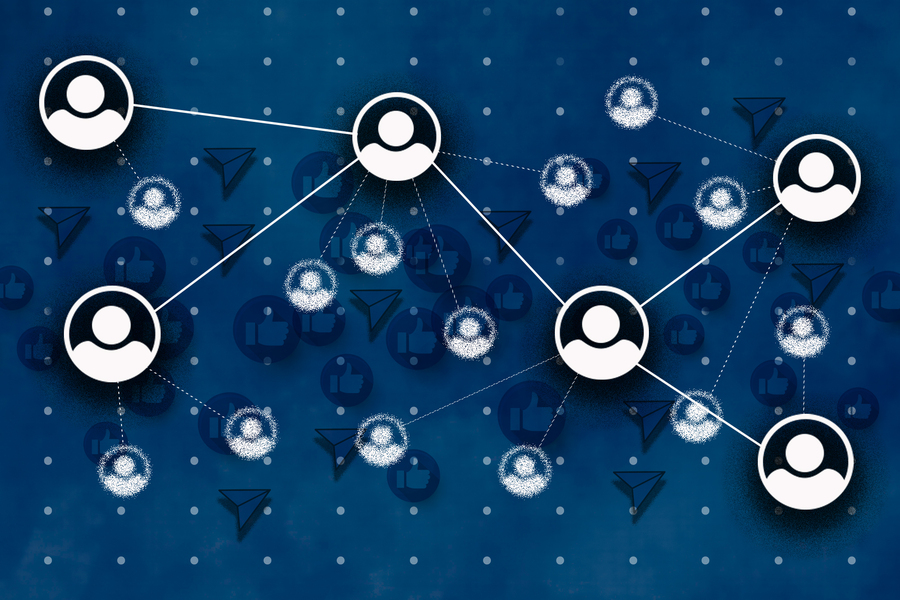Ever stand in a room full of people and feel like you're invisible—while everyone else seems to know exactly what to say? Trust me, I’ve been there. Networking can feel like a necessary evil, but it’s the most underrated way to grow personally and professionally, especially when you least expect it.
Why Networking Feels So Awkward, But Shouldn’t
Let’s be real: “networking” often makes you feel like an actor learning lines, “What do I say? How do I sound smart?” Or it becomes a numbers game: more business cards = more success? Not even close. And if you're introverted, forget about it, you might think it’s not for you.
But here's what I’ve learned: networking isn't about forced chatter or collecting contacts. It's about building real relationships, one genuine conversation at a time.
Payoff Backed by Research
1. Every Conversation Counts—Weak Ties Hold Power
Weaker, casual connections (aka the people you barely know) often lead to the coolest opportunities. A recent MIT, Harvard, and Stanford found that such "weak ties" provide better job leads than your closest friends, TIME. It's the unexpected call from someone you met once that can change everything.
2. Networking Builds Social Capital and Career Capital
Networking isn't Robin Hood—it's more like battlefield strategy. Research shows that professionals who network enjoy better promotions, higher salaries, and greater job satisfaction ProQuest. You're not just making friends; you're building influence.
3. It's a Lifeline for Mental Health & Innovation
At the University of Illinois blog, they shared how researchers with strong peer networks are more productive and even happier blogs.illinois.edu. Similarly, in academic settings, Dr. Maria Papathanasiou and others emphasize that networks drive collaboration, innovation, and resilience universitylabpartners.org.
Real-Life Examples That Prove It's Real
- Aminatou Sow (Tech LadyMafia) met a friend through a random encounter, and that friendship blossomed into a 2,000+ member global tech network for women on Wikipedia.
- Jessica Cordova Kramer (Lemonada Media) transformed her career after connecting with Stephanie Wittels Wachs on another podcast—now they helm a major media company together, Wikipedia.
- Jordan Harbinger, once just a networker in law school, built a million-download show by simply connecting with interesting people, Wikipedia.
- Ashley Flowers turned a podcast hobby into Audiochuck, struck a $100M+ deal with SiriusXM—with relationships behind the scenes powering growth, and Wikipedia.
How to Network Without Feeling Fake or Exhausted
1. Listen More, Talk Less
People remember how you make them feel, not how polished your pitch sounded. Genuine interest goes further than charisma.
2. Seek Common Ground
Shared experiences, whether it’s bad Uber rides or a passion for board games, are gold. Use them to unlock real conversations.
3. Help First, Ask Later
Offer something, an article, a connector, even if there's no immediate benefit. Connection thrives on generosity.
4. Speak Human, Always
Skip “What’s your elevator pitch?” Instead, ask: “What’s something cool you're working on?” That small shift can spark richer dialogue.
5. Follow Up Like a Friend
A quick message like, “Loved our chat, let’s keep in touch,” goes a long way in building trust.
Why Networking, Not Just Knowing, Is What Matters
Yes, what you know matters—but even smarter is who you know, says Investopedia. The right connection can raise you to opportunities your skills alone might not unlock.
Chemistry Over Quantity
Harvard researchers Francesca Gino and team highlight that networking with shared interests—and giving before receiving makes connections feel authentic, not forced. Glamour.
Powering Your Journey
Every time you awkwardly spark a chat or send a message, you're weaving your future community. Networking doesn’t have to be grand or scripted; it simply needs heart.
Next time you're nervous about networking, try just ONE of these: ask someone what they’re excited about; drop a follow-up “great to meet you” note; give someone a resource. See how it feels.
If one connection can change someone’s day or their life, imagine what it can do for yours.
Cheering you on,











